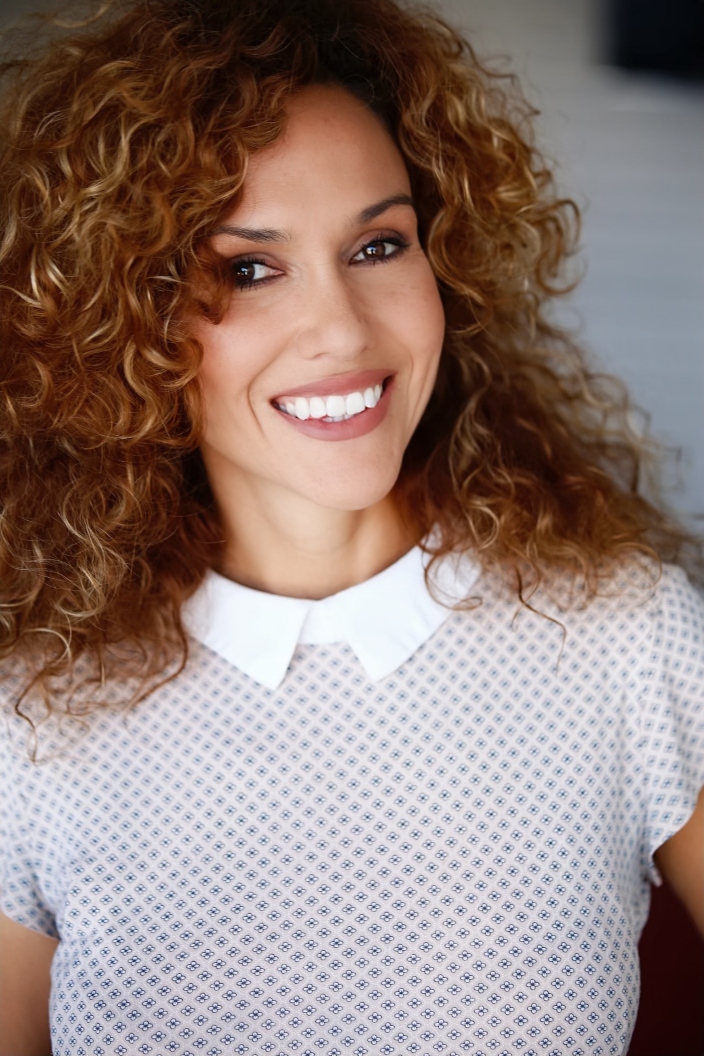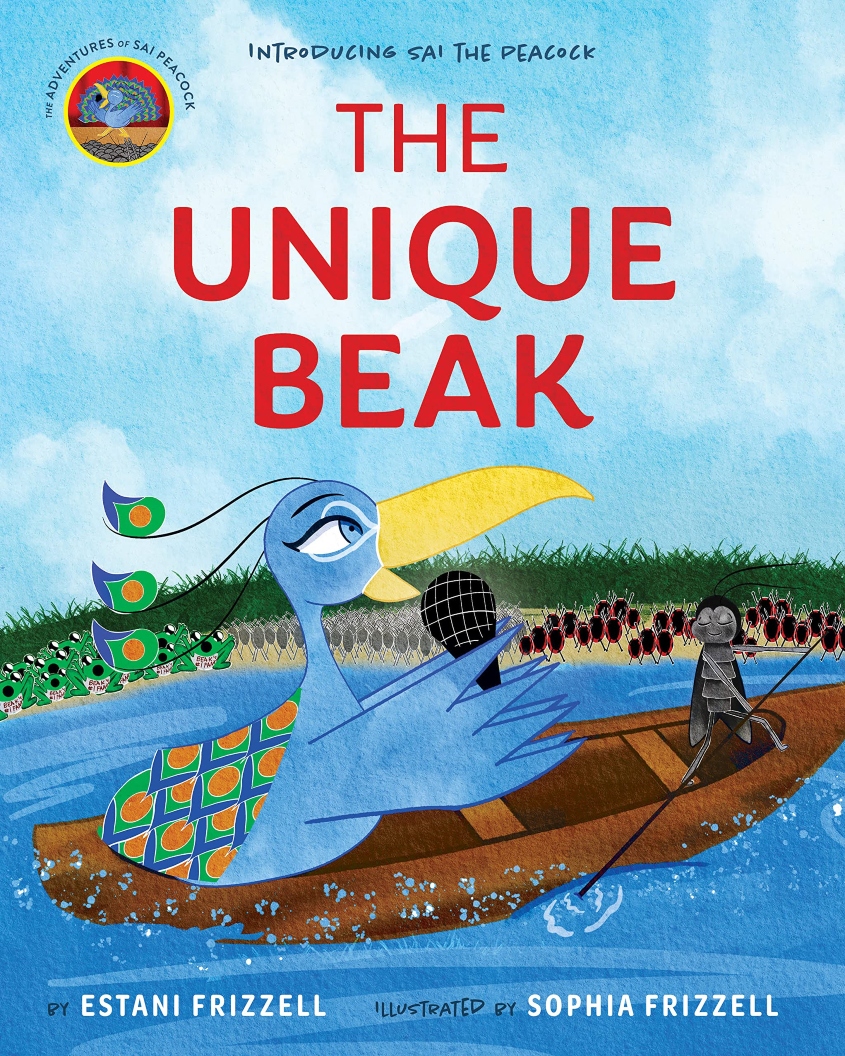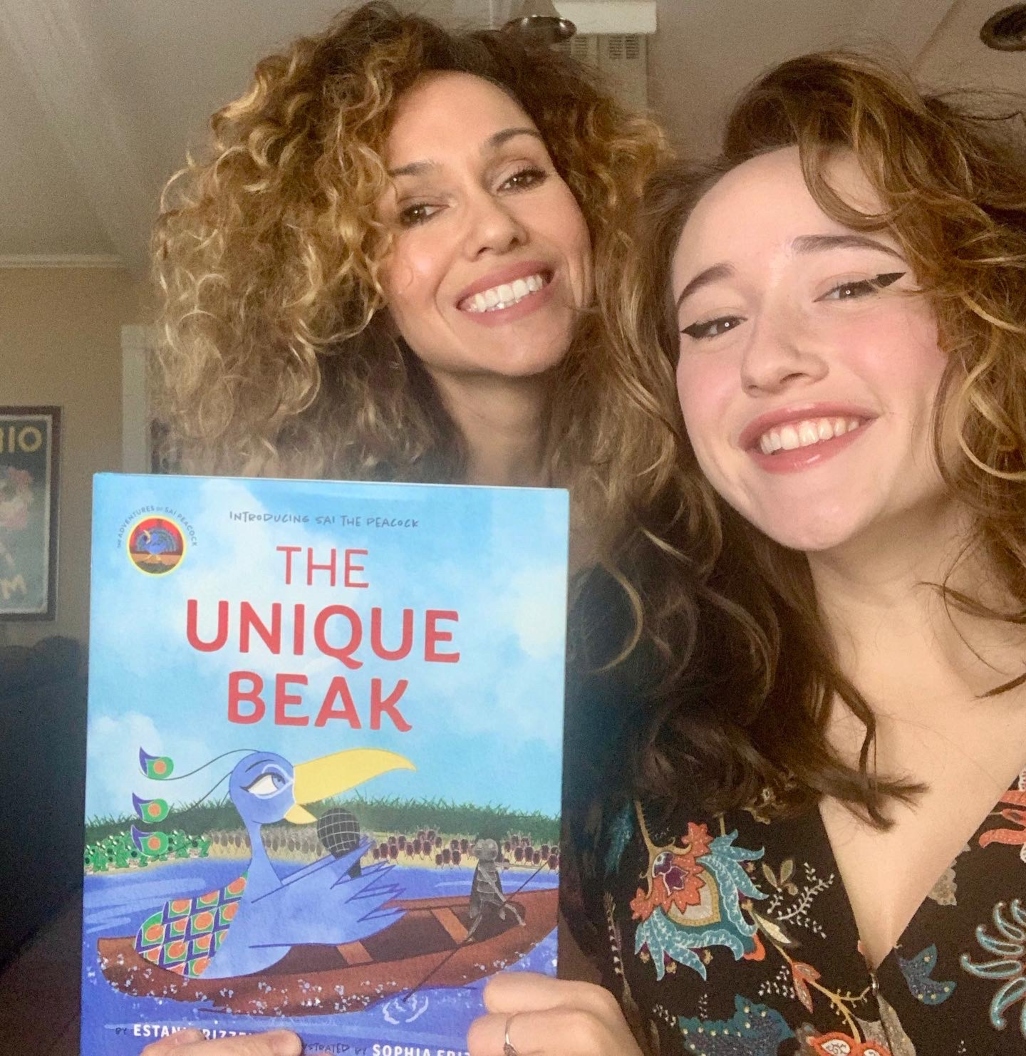Estani Frizzell uses her musical accomplishments to champion a story of self-determination through children’s literature.

By Katherine Powell, Photos courtesy of Estani Frizzell
Estani Frizzell has accomplished many achievements within the entertainment industry. She is often known as a “multifaceted singer/songwriter,” and this title could not be more true. Frizzell pridefully and artfully displays her rich Latin heritage through her music, earning her several esteemed nominations such as the LA Independent Women’s Film Festival selection for her music video “Tell Me Why” and Hollywood Music in Media award nominations for Best Traditional Latin Song (“Veinte Años”) and Best Adult Contemporary song (“Higher”). Frizzell has now tackled a new challenge: children’s literature. With this latest endeavor, the hopes to inspire individuality and self-acceptance in the next generation.
Please describe yourself.
I started off as a multifaceted singer/songwriter, but I have my hand in many other passions. I was a teacher for 11 years as well as a vocal coach and producer. I’m also a single mom. That’s something I take a lot of pride in. I raised my daughter since she was born, and now she’s 18. She is an amazing person, and I hope to think I’ve had a hand in that. I was based in L.A. before my daughter, but after she was born, I went into children’s book writing.
In L.A. there was a constant feeling of hustle, hustle, grind, grind. The irony is that [since]I moved to Austin, things feel like they’re moving a lot better. In a better quality kind of way, not in a hamster wheel. I’m actually originally from Texas, and my daughter goes to the University of Texas. I wanted a more peaceful environment for us.
You have worn many hats and achieved much within the music industry. Why was it important to delve into the world of children’s literature?
I have always resonated with younger children. Teaching enabled me to have a certain vernacular with them, and I’ve always had positive interactions. Through teaching I’ve learned to come from an angle of positivity with children. You can praise something because they did the best they can. Finding that confidence for children is important. Even if what I initially asked for wasn’t done, I can always try to find and focus on their strengths. Using animals makes it easier to use certain experiences and emotions without making it a real human problem. You can identify [emotions]with young children, and they can relate to the characters of an animal instead of a person. I think it’s fun for a child to find how that may resonate with them.
Writing children’s books was also inspired by seeing how my daughter handled certain circumstances. Sometimes, I had to leave her with friends when I went to sing in L.A. She would always have to find a way to acclimate to new environments. This was difficult for her and for me, and I saw the way it affected her. I wanted to write about confidence and self-reliance within children’s books. That’s what The Unique Beak is about. What I’ve learned is if you have anything that is a challenge, you can keep going and move forward.
Can you tell me a bit more about Sri the Peacock and why self-determination is an important trait for him?

My daughter and I lived in Pasadena, California, and there’s a little town, a beautiful area, called Altadena with so many peacocks. In any neighborhood you would see peacocks! Sometimes they would run across the street, and I always wondered how they got there. Apparently, there was a guy who owned a lot of land and exotic animals in California. When he passed, his family didn’t take care of his estate, and some of the animals went feral. One day my daughter and I were coming home from her school and there was a flock of peacocks. A family–a mom, dad and babies–crossing the street. The sad thing was they went into a little concrete ditch. I felt so bad, and we had a long conversation about it.
I was teaching rhythm and rhyme to little preschoolers. Having that experience watching those little peacocks, I started thinking from a human standpoint. They were crossing the street, and they didn’t have a home. I had this idea of Sri–he’s an outcast–and I put the two ideas together. His parents are king and queen, but he wants to be a part of the everyday non-royalty. He has this really large beak, and [his family]is embarrassed about it. There was a comment on Goodreads saying, “Why do you have the mother shun him?” It was meant to represent how people, unfortunately sometimes your family, can be a little harsh.
What you say to a child is important. Sometimes we don’t fully realize the affect our words can have. Sri has this dream that goes uncultivated. His family asks, “How are we going to make this bird the next king because he has a big beak?” This is how I encounter the discriminatory aspect of the story. Sri begins to internalize this, but he doesn’t let go of what he feels is best for him. He turns it into his personal stamp and brand.
You can’t force a circle into a square; it just does not work. Sometimes it takes one person, that someone you respect, love or admire who with one comment can really knock you down. Sometimes those comments don’t mean anything to the person who said it but mean everything to the person who felt it. I don’t think people know how much one comment can psychologically harm someone. It’s one of those things you have to cancel out. You have to let it go out of your heart so you can immediately feel better. In the story, Sri relies on [his uniqueness]to show his best talents–to sing–because he has a bigger beak. In fact, the bigger your mouth and nasal cavity, the greater your voice has an ability to resonate. Take Freddie Mercury for example. Sri’s insecurity was the thing that made him unique.
What does following your dreams mean to you, and why do you think this is an important message in children’s literature?
Following your dreams. I believe it sounds so easy, but following your dreams and happiness, it’s a hard bridge to gap. Being on this planet longer, you realize what your definition of success really is. It’s more about the journey not the destination. If anybody has a dream, just start. Start mini, micro goals, from 0 to 5, 5 to 10. If it looks so unattainable, it’s easy to get discouraged. It may not look the same as when you were a kid, but if you follow that thought, follow that original dream, it can take you down that divergent road.

In life, I want to say that I did everything I wanted to do. [Your dreams] will find you, or you will find [them], and it might surprise you. I grew up hearing excuses because of this or that, but there’s always a way. My daughter Sophia is the illustrator of the book, and I was very fortunate to work with her. We can always agree to disagree. I give her this space in a field that I don’t know much about, and that gives her freedom to be her own boss. She’s really good at it. I wanted to give her strength and her own freedom to illustrate instead of hovering over her. We are really excited. It’s a very different kind of work than my music, and it’s been exciting to see this all come to fruition.

